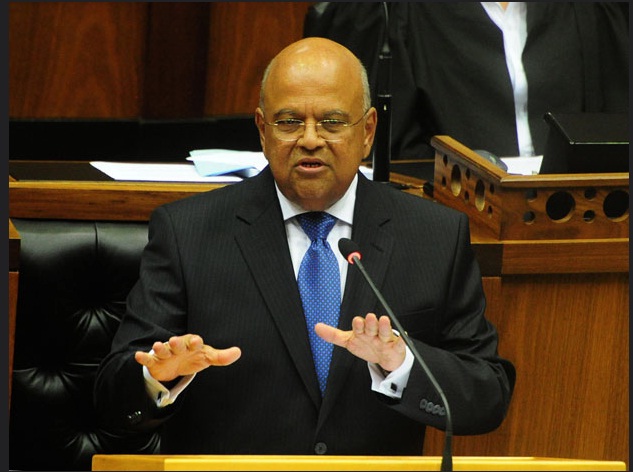Each year Parliament authorises taxes and public expenditure which provides the Government with the money it needs to deliver its policies and run vital services in areas such as Health, Education and Defence. The Budget allocates money between the three spheres of government (national, provincial, local) based on revenue collected. It is discussed in committees, debated in the two Houses, and a vote is taken.
 Photo: GovernmentZA
Photo: GovernmentZA
What is the Budget?
The Budget is an annual plan for what government wants to achieve and how it will spend money to achieve those goals. It is the most important economic instrument of the government. It is used to:
- make sure that the state has the resources it needs to do its work
- create conditions that stimulate economic growth
- clearly indicate the priorities of government
Need for Budget
It is not as if the Government can tax, borrow and spend money the way it likes. Since there is a limit to the resources, the need for proper budgeting arises to allocate scarce resources to various governmental activities. Every item of expenditure has to be well thought out and total outlay worked out for a specific period. Prudent spending is essential for the stability of a Government and proper earnings are a prerequisite to wise spending.
The Budget cycle
Although most of us hear about the year’s Budget when it comes to Parliament, it has taken 14 months of work to prepare. In other words, by the time a Budget is introduced, the Budget for the following year has been in preparation already. The process takes so long because a number of time consuming processes must be completed first. Each Budget is part of an ongoing three-year plan called the Medium-Term Expenditure Framework (MTEF). Planned expenditure for the year immediately ahead (year 1 of the MTEF cycle) is fixed while the two years after that (years 2 and 3 of the cycle) are revised in the next budget cycle.
Bringing it all together
The budgeting process involves bringing together the fiscal framework (how much money is available), the budget proposals (how the departments think the money should be spent), and the division of revenue proposals (how the money should be divided). Choices are made, taking into account the policy priorities of the national and provincial governments, and the budget policy statement is released. Departments then refine their budget proposals to fit in with the budget policy statement and the Budget bills are finalised. An amount of money is included in the Budget for unforeseen expenditure.
Tabling the Budget
The Minister of Finance introduces the budget proposals for that financial year and tables three bills in the National Assembly:
-
the Division of Revenue Bill which specifies how money will be equitably divided among the spheres of government and the various provinces during the year
-
the Appropriation Bill which sets aside money for national government and says how it will be divided among the various national departments and state institutions during the year
-
the Income Tax Laws Amendment Bill which amends the various tax laws to make sure the government can raise the money it needs to spend during the year
After portfolio committee deliberations the bills are debated in the National Assembly and a vote is taken. They are then sent to the National Council of Provinces (NCOP) for consideration. Because the Division of Revenue Bill affects the provinces, the NCOP must be involved in the final decision on whether it passes into law.
The role of committees
As with other bills, the budget bills are discussed in the relevant parliamentary committee, in this case the Portfolio Committee on Finance. The committees may organise public hearings and receive submissions from the public. The budgets of specific national departments are discussed in the committees which oversee those departments. Once a committee has finished its work it may submit a report on its findings to the relevant House of Parliament. In their oversight of government departments, committees can hold departments accountable by comparing the budget plans that Parliament has approved with what has actually been done.
Parliament also exercises its oversight through various Portfolio Committees that assess the plans and performance of each department and hold them accountable. Parliament’s Standing Committees, together with National Treasury and the Department of Performance Monitoring and Evaluation (in the Presidency), analyse departmental reports on performance indicators that measure progress made on their mandates for which they are given their share of the budget. This monitoring is done on a quarterly basis. National Treasury holds departments accountable in relation to budget allocations by assessing value for money as well as spending patterns on policy priorities. The Department of Performance Monitoring and Evaluation holds departments accountable in relation to outputs as included in Delivery Agreements signed between the President and the relevant national Minister.
Source: www.parliament.gov.za

Comments
Keep comments free of racism, sexism, homophobia and abusive language. People's Assembly reserves the right to delete and edit comments
(For newest comments first please choose 'Newest' from the 'Sort by' dropdown below.)